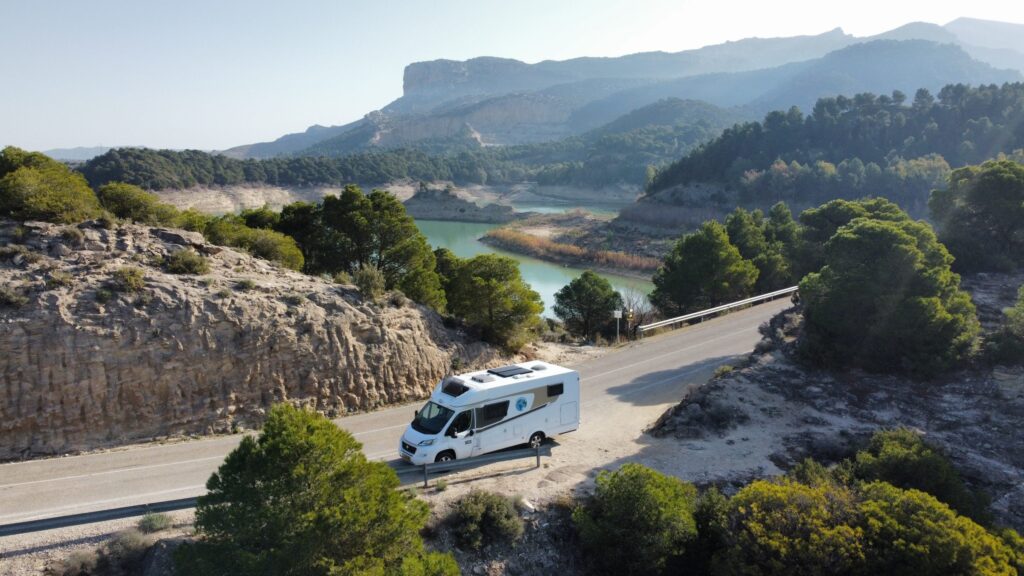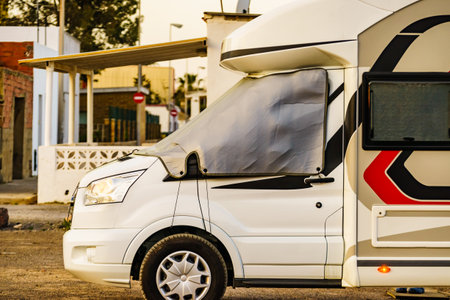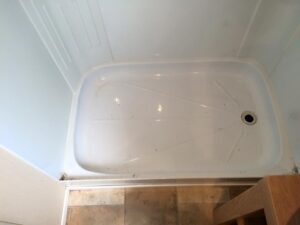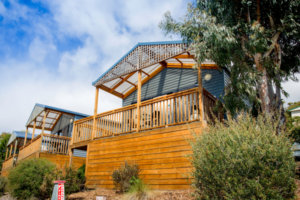Introduction: Spain as a Motorhome Destination
Spain, with its rich tapestry of culture, history, and diverse landscapes, has long been a magnet for tourists from all corners of the globe. Its allure isn’t just limited to its sun-kissed beaches or vibrant cities. The country offers a plethora of well-preserved historical sites, architectural marvels, and a culinary scene that’s second to none. This makes it an ideal destination for those wanting to explore at their own pace, especially in a motorhome.
Motorhoming in Spain offers a unique blend of freedom and adventure. It allows travelers to immerse themselves in the Mediterranean atmosphere, experience the passionate culture firsthand, and savor the delectable Spanish cuisine right from the source. With the flexibility to chart one’s own course, many consider spending their vacation driving through Spain’s picturesque landscapes in a motorhome, making memories that last a lifetime.
Options to Travel to Spain with a Motorhome
For those considering a motorhome journey in Spain, there are two primary routes to get there. The first is by taking a ferry from the UK, a convenient option that offers a direct passage to Spain, bypassing the need to drive through other countries. This sea route not only provides a scenic journey but also ensures that the motorhome and its contents are safely transported to the Spanish shores.
The alternative is to drive through France, offering a road trip that can be as enriching as the destination itself. This route allows travelers to experience the beauty of the French countryside, visit iconic landmarks, and indulge in French gastronomy before entering Spain. However, it’s essential to be aware of the road regulations and requirements of both countries to ensure a smooth journey.

Regulations and Requirements
Spain, like many countries, has specific regulations in place for vehicles entering its borders. To begin with, any motorhome entering Spain must be registered in the traveler’s country of residence. This ensures that the vehicle adheres to the safety and environmental standards set by the home country. Additionally, having valid insurance is non-negotiable. This not only provides protection in case of unforeseen incidents but is also a mandatory requirement for driving in Spain.
The driver’s credentials are equally important. A valid driver’s license from the country of residence is essential. For non-EU citizens, there might be an added requirement of obtaining an International Driving Permit (IDP). This permit acts as a translation of the driver’s license and is recognized internationally, ensuring that the driver’s credentials are valid and accepted in Spain.

Special Permits
Driving a motorhome in Spain might require some special documentation. One such essential document is the Carnet de Passage en Douane (CPD). The CPD is an international customs document that acts as a passport for the vehicle. It proves the ownership of the motorhome and indicates that the vehicle is in the country temporarily, ensuring that it will be taken out after the visit.
Obtaining the CPD is crucial for a hassle-free experience in Spain. It’s valid for one year and comes with a fee, approximately around £250. This permit is a testament to the vehicle’s temporary stay in Spain and helps in avoiding any potential legal complications or misunderstandings with the local authorities.

Insurance in Spain
Insurance plays a pivotal role when driving in a foreign country. In Spain, apart from the regular vehicle insurance, there’s an added requirement of having a Green Card. This document is an international insurance certificate that proves the motorhome is adequately insured to be driven in Spain. It acts as a guarantee that any damage caused by the vehicle in an accident will be covered, protecting both the driver and any third parties involved.
Acquiring a Green Card is relatively straightforward. It can be obtained from the motorhome’s insurance company, usually at no extra cost. However, it’s essential to request it in advance of the trip to ensure it’s ready and valid for the duration of the stay in Spain. This document, coupled with the regular insurance, provides comprehensive coverage and peace of mind while exploring Spain in a motorhome.

Motorway Fees (Peaje)
Spain’s infrastructure, especially its motorways, is well-developed and facilitates smooth travel across the country. However, using these motorways often comes at a cost, known as the Peaje. The Peaje is a toll fee that varies based on the length of the journey and the type of vehicle. For motorhomes, especially larger ones, the fee might be higher compared to regular cars.
Payment methods for the Peaje are diverse. Travelers can opt to pay using credit cards, cash, or even a special card known as an e-Peaje. The e-Peaje is a convenient option for those planning to use the motorways frequently, as it allows for electronic toll collection, speeding up the process and reducing waiting times at toll booths.
Free Camping in Spain
Free camping, or the act of setting up camp outside of designated camping areas, has its own set of rules in Spain. Generally, free camping is permissible if you have the consent of the private landowner. This means that if you stumble upon a picturesque spot where you’d like to camp or park your RV, it’s essential to communicate with the landowner and seek permission. While many might allow it without any issues, some might request a nominal fee for using their land.
However, it’s crucial to differentiate between free camping on private land with the owner’s consent and wild camping. The latter involves setting up camp in undesignated areas, often in natural settings, without any permissions. In Spain, wild camping has its own set of regulations, which we’ll explore next.
Wild Camping in Spain
Wild camping, or camping in natural areas outside of designated campgrounds, is a gray area in Spain. Technically, it’s forbidden to camp in the wild. However, there’s a distinction made between parking and camping. For instance, parking in an untamed area not meant for camping is prohibited, especially if it involves setting up external equipment like awnings, tables, chairs, or even opening non-sliding windows, as these actions are considered camping.
The essence of these regulations is to protect the natural environment and ensure that areas of natural beauty remain undisturbed. While the allure of wild camping is undeniable, especially with the scenic beauty Spain offers, it’s essential to be aware of these rules and adhere to them, ensuring a responsible and eco-friendly motorhome experience.
Sleeping on the Beach in Spain
The idea of parking your motorhome by a beach and waking up to the sound of waves is undoubtedly romantic. However, in Spain, there are strict regulations regarding this. In many places, camping or even sleeping on the beach overnight is strictly prohibited. Regions like Valencia have stringent rules in place, with penalties reaching up to €1,500 for violations.
The reasons behind these prohibitions are multifaceted. Health and safety concerns top the list, ensuring that beachgoers have a safe environment. Additionally, environmental concerns play a significant role, as beaches are delicate ecosystems that can be easily disturbed. Lastly, security concerns also factor in, ensuring that both locals and tourists have a secure environment. While the dream of beachside camping is enticing, it’s essential to be aware of and respect local regulations.

Living in a Caravan in Spain
Spain, with its pleasant climate and scenic beauty, might seem like the perfect place to live in a caravan. However, there are regulations to consider. While one can live in a caravan in Spain, it’s typically only allowed temporarily. Moreover, the caravan must be parked in designated areas, as wild camping or parking outside in undesignated zones is against the law.
The rules regarding caravan living aren’t uniform across Spain. The country is divided into various Autonomous Communities, each with its own set of regulations. Therefore, what might be permissible in one region might not be in another. It’s crucial to research and understand the specific rules of the region you’re in. For extended stays, registering at a local campsite might be necessary, ensuring compliance with local laws and regulations.
Conclusion: Navigating the Spanish Adventure in a Motorhome
Spain, with its captivating blend of history, culture, and natural beauty, beckons travelers from all over the world. For those seeking a unique, immersive experience, exploring this magnificent country in a motorhome offers unparalleled freedom and adventure. However, as with any journey, preparation is key. From understanding the intricacies of vehicle regulations to being well-versed with camping norms, a well-informed traveler ensures not just a smooth journey but also respects the local customs and environment.
While Spain welcomes motorhomers with open arms, it’s essential to be mindful of the rules that safeguard its natural beauty and maintain the harmony of its communities. Whether it’s the allure of wild camping amidst Spain’s diverse landscapes or the dream of waking up to a beachside sunrise, always remember to tread lightly and responsibly. By adhering to the guidelines and embracing the Spanish ethos of ‘vivir la vida’ (live life), motorhomers can create memories filled with vibrant Spanish flavors, breathtaking vistas, and the warm embrace of its people. So, gear up, plan well, and let the Spanish roads lead you to tales waiting to be discovered.



